Pomegranate bijoux (jewels)
Pomegranates are one of my favorite fall and winter delights. A cherished fruit from childhood, the romance does not seem to fade. Something about that leathery, weathered skin and the little gemstone fruits obscured within… gut-wrenchingly beautiful. Admittedly, pomegranates do require more labor then your garden-variety apple. The peeling apart of the skin and gentlw nudging of seeds out of their cozy little chambers takes patience. For me, this process is part of the experience of eating the fruit. Anticipation and effort enhance the exquisite taste. I have always enjoyed pomegranate seeds ( by which I mean the red fruit and seed(aril) within), but I have encountered a few pomegranate eaters who spit out the seed. This struck me as a very tedious way to enjoy a fruit that is, let’s face it, at least slightly labor intensive.
I understand that everyone has their preferences, but I started to research the fruit (particularly the seed), and it turns out that the seed is teeming with good-for-you lipids.
Historically, pomegranates have been used for respiratory issues, parasitic and bacterial infections, diarrhea, ulcers, canker sores, and hemorrhage. There are multiple healthful constituents of the pomegranate including the bark, leaves, and root of the plant, the fruit, the juice, the seeds, and the peels. Ellagic acid is the most acclaimed antioxidant found in pomegranates. It has strong antioxidant and anticancer properties. However the synergistic action of multiple pomegranate constituents is thought to be superior to ellagic acid alone, specifically in prostate cancer suppression.
The peel of the fruit has the greatest level of antioxidant activity. Punicalagin and punicalin are ellagitannins found in the peel that are unique to pomegrantes. Ellagitannins can be hydrolyzed by the body to ellagic acid, a renowned antioxidant.
Pomegranate juice is replete with Vitamin C, Vitamin E, coenzyme Q10, lipoic acid, and other antioxidants.
Pomegranate seeds have less antioxidant activity then the fruit or the peel, but they are teeming with good-for-you lipids. They have a unique fatty acid profile distinguished by high levels of linoleic and linolenic acid. Linoleic acid is involved in the production of PGE1 (the anti-inflammatory prostaglandin). Punicic acid is a fatty acid unique to pomegranates and makes up 70-76% of the seed oil. Punicic acid is thought to be an essential component in insulin regulation, blood sugar homeostatis (balance), and obesity related inflammation. ( Warning: about to geek out)
One means by which pomegranates exert their health benefits is via interaction with the gut microflora(bacteria). Pomegranate ellagitannins arrest the growth of certain pathogenic bacteria and increase the growth of beneficial bacteria and the production of short chain fatty acids(SCFAs). SCFAs exert beneficial effects via activating peroxisome proliferater-activated receptors (PPARs). PPARs regulate inflammation, immunity, and metabolism. Nutrients, non-nutrient molecules (ligands), and drugs can control their activation and expression.
PPAR agonists (chemical substances that can activate the PPAR receptor), specifically the antidiabetic drugs, have multiple adverse side effects including liver toxicity, weight gain, fluid retention leading to both edema and congestive heart failure. Natural PPAR activators, such as punicic acid(found in pomegranate seed oil) are far more promising because they can treat obesity, diabetes, metabolic syndrome, reduce triglyceride and glucose levels, increase insulin sensitivity, and increase HDL (good cholesterol) without any of the untoward side effects.
Pomegranates and Inflammatory Bowel Disease and Necrotizing ColitisPPARs ( specifically the delta and gamma variety) are known for their ability to inhibit inflammation in the gut. This is particularly helpful in Inflammatory bowel disease and inflammation-relation colorectal cancer. Necrotizing colitis (NEC)is a calamitous disease characterized by severe inflammation of the intestines. Premature infants are especially susceptible. One study showed that supplementation of pomegranate seed oil in milk formula significantly decreased the incidence ( from 61% to 26%) and severity of NEC in an animal model.
Anti-cancer and Anti-inflammatory properties:
Pomegranates have beneficial anti-carcinogenic activities in addition to their anti-inflammatory properties, and the combination of the different parts of the fruit is more effective than isolated extracts. Pomegranate fruit extracts have been shown to induce apoptosis (programmed cell death) and decrease cell growth in prostate cancer cell lines. Cyclooxygenase-2 (COX-2) is a key enzyme involved in the inflammatory cascade. It converts arachidonic acid into prostaglandins, which are significant inflammatory moderators. COX-2 expression has also been associated with increased cell growth and proliferation. Pomegranate juice was shown to decrease COX-2 expression in colon cancer cell lines.
Lipoxygenase is an another pivotal enzyme involved in the inflammatory cascade. It converts arachidonic acid into leukotrienes, which are another group of important inflammatory modulators. Pomegranate juice has been shown to decrease lipoxygenase activity.
Pomegranate extracts have been shown to down-regulate pro-inflammatory cytokines (IL-6, IL-8, and NF-KB). They also inhibit angiogenesis (growth of blood vessels) in breast cancer lines.
Pomegranates and Osteoarthritis:
MMPs (matrix metalloproteinases) are involved in collagen and joint degradation seen in osteoarthritis. Pomegranate juice has been shown to down-regulate MMP expression which helps prevent collagen degradation and inhibits joint destruction, thus ameliorating osteoarthritis.
Pomegranates in Ayurveda:
In Ayurveda, sweet pomegranates are thought to alleviate all three doshas. All parts of the pomegranate shrub have medicinal qualities and are used. The fruit is thought to be especially nourishing to the blood. The root and bark are used to treat worms. The fruit rind is a good astringent and useful for loose bowel movements. The pomegranate as a whole is a well-regarded aphrodisiac and helps with fertility, and is specifically beneficial for semen.
Whew… that is a lot to digest! Hopefully you are eating a pomegranate, which will make the entire process easier. Ha! Enjoy!
References:
1. Preventive and prophylactic mechanisms of action of pomegranate bioactive constituents. Viladomiu M, Hontecillas R, Lu P, Bassaganya-Riera J. Evid Based Complement Alternat Med. 2013;2013:789764. doi: 10.1155/2013/789764. Epub 2013 Apr 30 2. Lad V, Frawley D. The Yoga of Herbs. pp. 135-136. Twin Lakes: Lotus Press, 1996, 2001. print. 3. Pole, S. Ayurvedic Mecicine. p. 242, London: Singing Dragon, 2013. print.

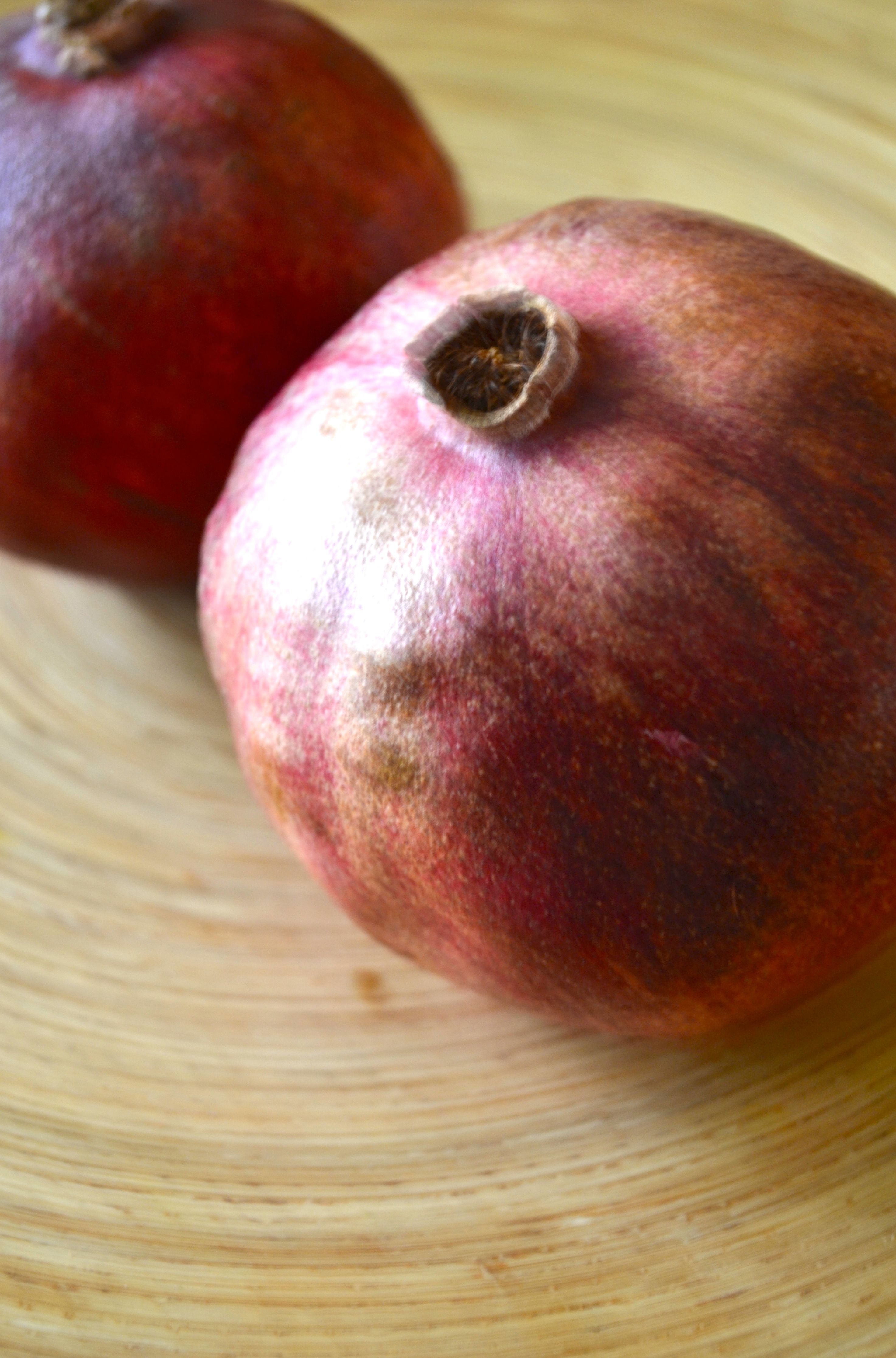
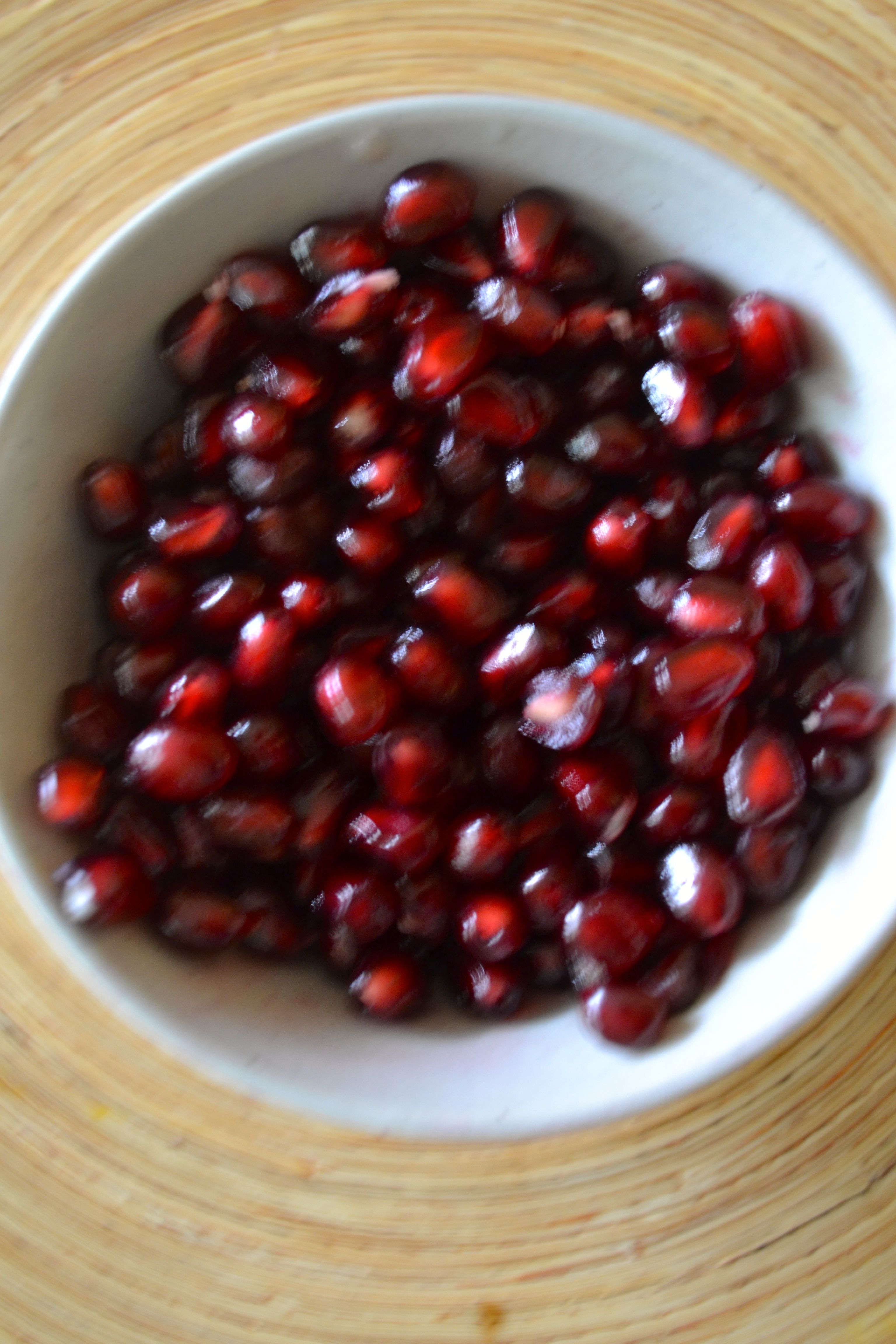
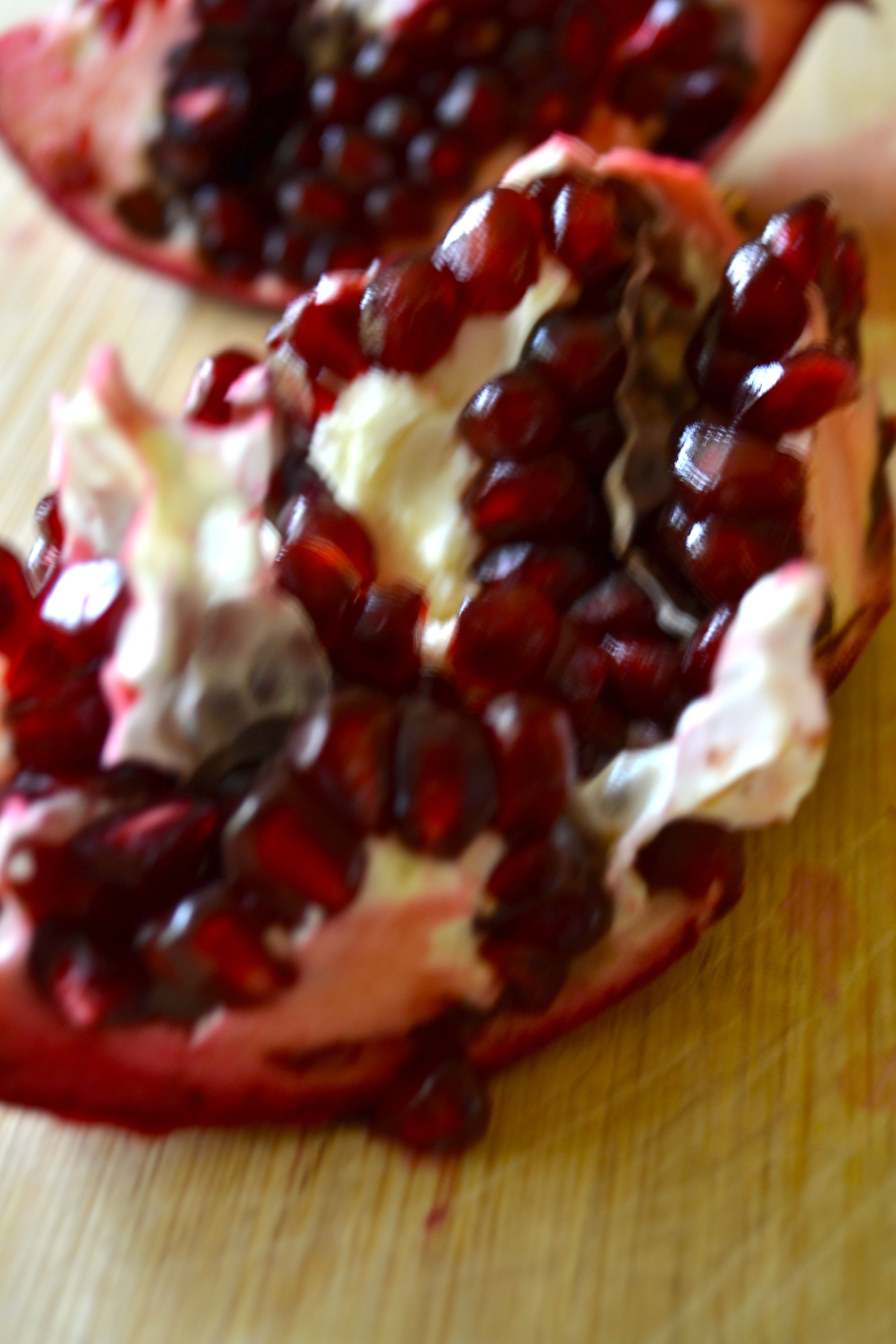
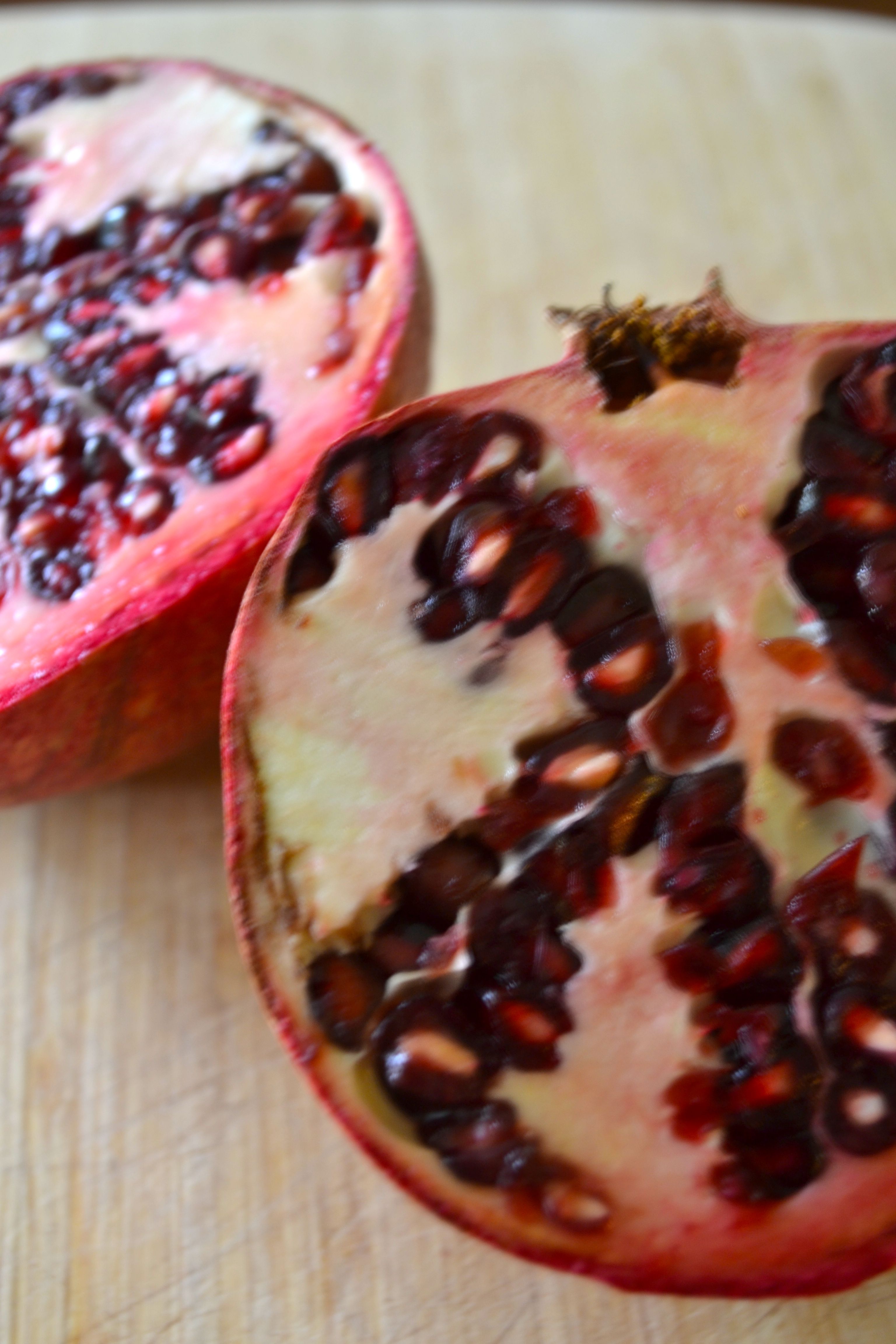
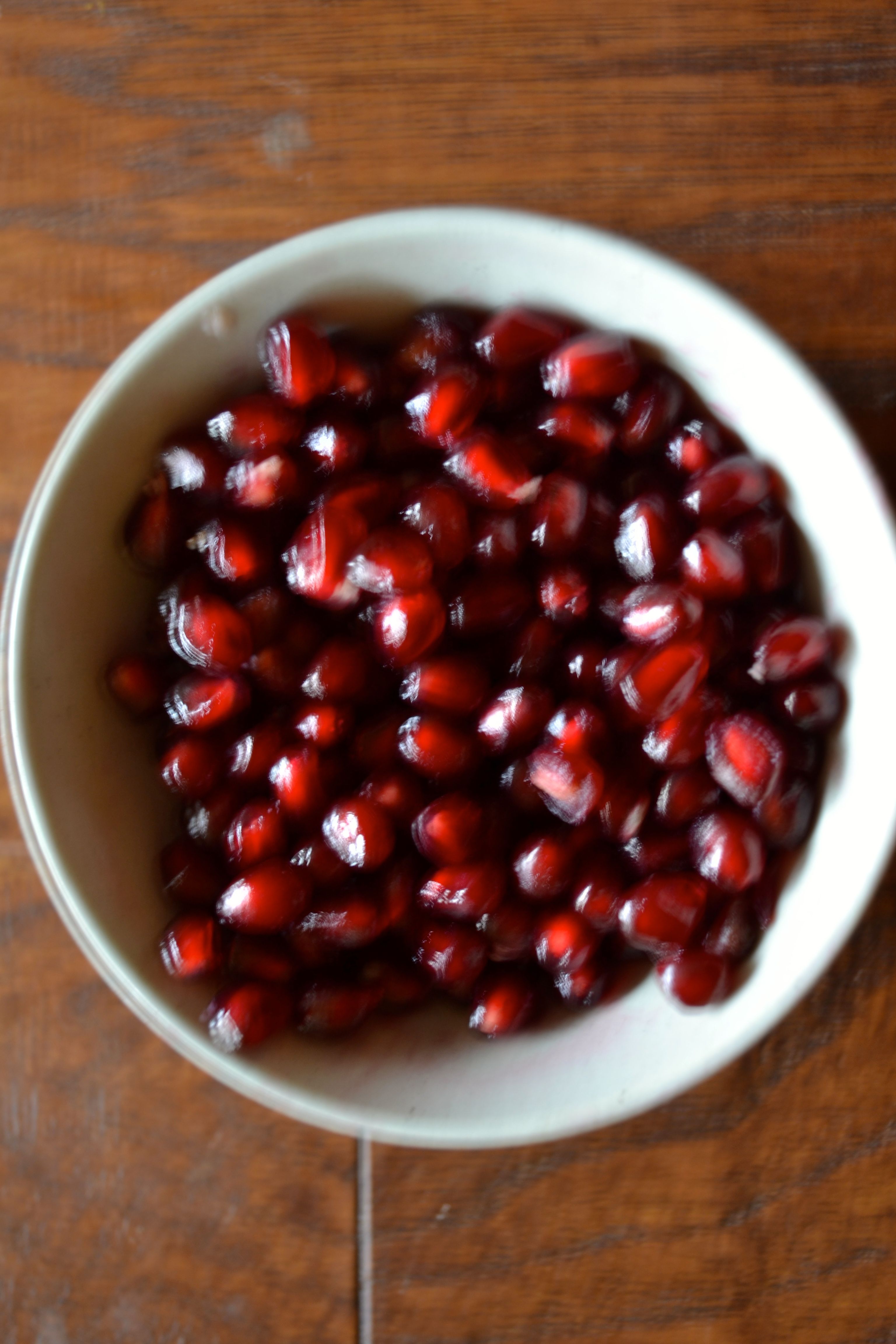
Leave a Reply